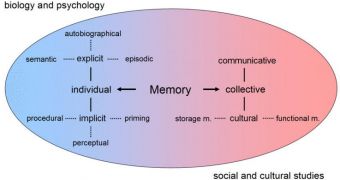Generally speaking, people appear to be doing a really bad job at assessing what they learned in a given situation. Their accuracy leaves a lot to be desired, say the authors of a new study into the issue.
Interestingly, it's this type of poor self-analysis that oftentimes leads people to make bad judgment calls, the experts add. The team behind the work is based at the Williams College.
One of the reasons why this happens is that our brain is used to making predictions related to memory based not on the actual things we've learned, but rather on the way we felt while we were being exposed to those information or events.
Those feelings weigh more in the brain than the actual data we have stored. As such, we are often led astray by our beliefs and perceptions about our own memories, PsychCentral reports.
“There’s a disconnect among beliefs, judgments, and actual memory,” explains psychologist Nate Kornell. She says that people “do a breathtakingly bad job,” at predicting how or what they will learn.
Chiefly among the mental processes that trick us is the automatic processing bias. It enters effect when people are exposed to information that they think is easy to process, and that they understand.
“If something is easy to process, you assume you will remember it well,” the expert says. However, that is often not the case, as the Williams College group demonstrated in three experiments.
Another factor that takes us off the path is the stability bias, which is when people are convinced that the memories they have today will remain just as stable and clear a year or 10 from now. Needless to say, that is seldom the case.
Even if people learn about these built-in limitations the brain has, it's very unlikely that anything will change, experts say. It would simply take too much time and effort to stand around and analyze your perceptions about your memories.
As such, the process would most likely continue to unfold automatically, because this is the way the cortex has evolved. It will do whatever it takes to minimize energy consumption, while at the same time providing “good enough” results.
When it comes to memories, “good enough” does not cut it, especially when a person needs to testify against another. Though there is little chance that individuals will be able to change their way of thinking in this regard, at least they will be aware of their existence.
Details of the new research are scheduled to appear in an upcoming issue of Psychological Science, a journal published by the Association for Psychological Science.

 14 DAY TRIAL //
14 DAY TRIAL //